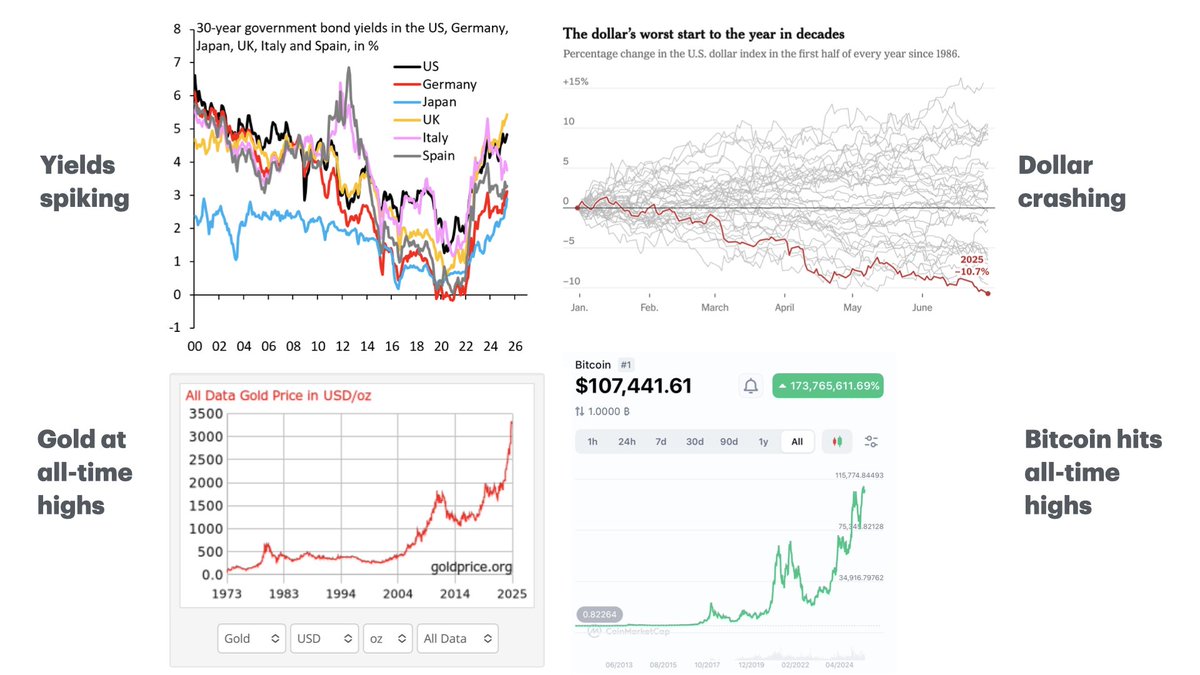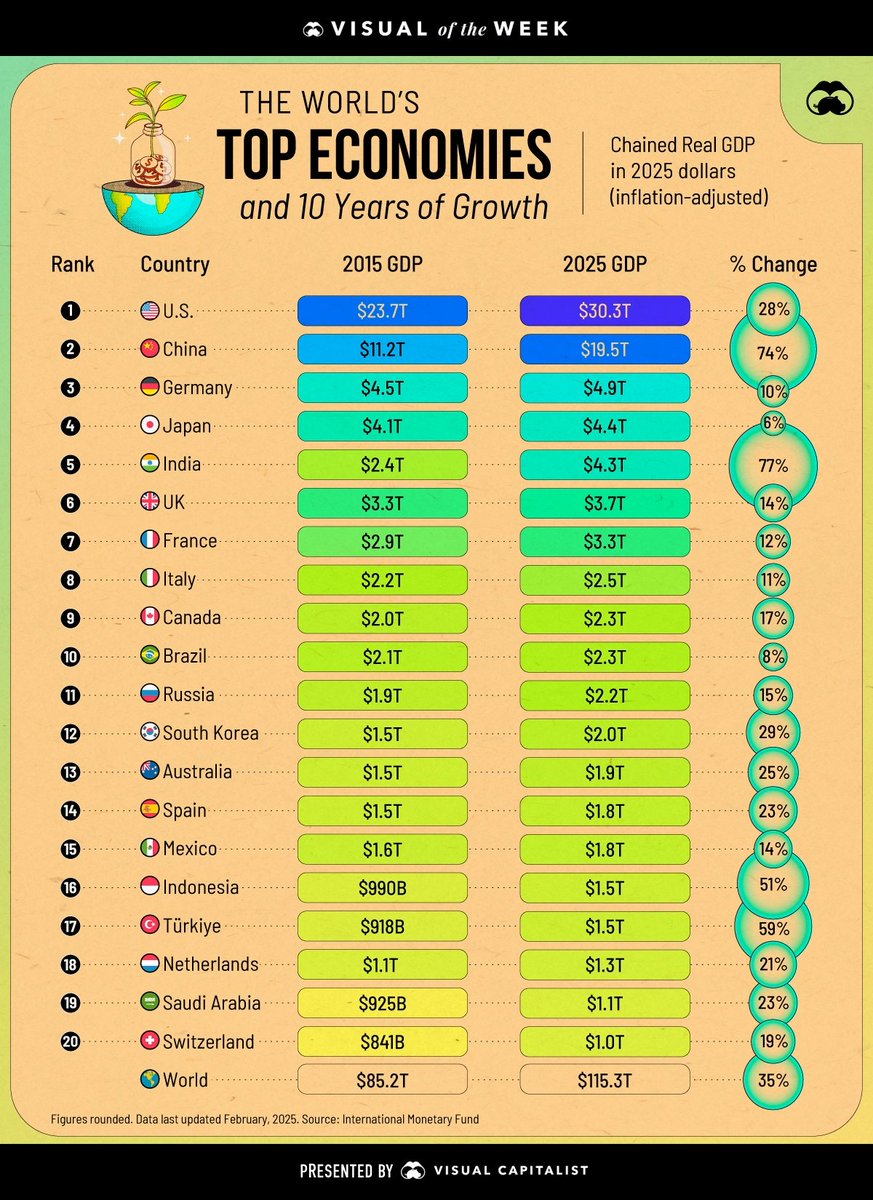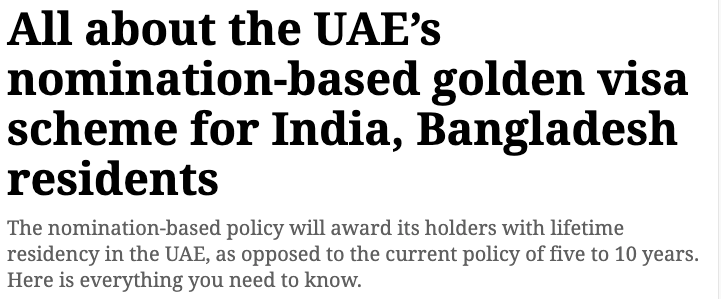No. But I'm happy to explain.
(1) First, you assume incorrectly that America is a valuable economy that everyone wants to get into, when it's unfortunately more like a bankrupt country that the smart money is rapidly getting out of. That's why BTC has appreciated by >100,000,000X against USD, why gold is at record highs, why yields are soaring, and why the DXY is crashing. I take no pleasure in pointing this out, but I do have to point it out.
(2) Second, you assume incorrectly that airgapping is censorship when it's actually more like digital borders. If X wants to retain both its American and Indian users, it might try to recommend American posts to Americans and Indian posts to Indians, rather than fomenting conflict where there was none before.
(3) Third, you assume incorrectly that airgapping is bad for getting your voice out there as an American. But recall that there are only 77M MAGA but 1.4B from India. In the absence of airgapping, you will eventually be overwhelmed on every thread by English-speaking Indians, who will soon represent the majority of English speakers online (if they aren't already). That will be extremely painful, for you.
(4) Fourth, you assume incorrectly that I'm advocating for continued immigration of tech to the US, when I actually tell global technologists to stop coming to the West and instead decentralize abroad because the system is about to go supernova.
(5) Fifth, you assume incorrectly that every Indian is dependent on the H-1B. But the H-1B is about as central to Indian talent today as the American market is to Chinese trade. That is: it's not so important that it can't be done without.
As context, after the start of the trade war in 2017, China rerouted most of its trade over the last 10 years to other markets, such that it only gets ~15% of revenue from the US. Like it or not, that means China is essentially indifferent to the 2025 tariffs.
Indians are similarly already rerouting talent flows to places like Dubai in the UAE, which has a higher GDP-per-capita and millionaire density than the US...and is rolling out golden visas even as the US is cutting back on H-1Bs. South Asians are >50% of the UAE, so Dubai is friendly to Indians in a way the US increasingly isn't.
That is happening simultaneously with the growth of the Indian home market. You might not know this, but India was the fastest growing economy in the world over the last 10 years, even ahead of China:
Finally, and most importantly, because Indians now have the TCP/IP visa, they don't really need the H-1B visa. An Indian engineer may be a second class citizen in America, but they are a first class citizen on the global Internet, and that's all they need.
Anyway: in the long run, I do think Americans and Indians will get along again. But for the foreseeable future I advise Indians to (a) not come to America, (b) not inadvertently boost anti-Indian threads, (c) build themselves up economically in India, in the UAE, and on the Internet, and (d) generally reduce their dependence on the US in every possible respect, especially with respect to the US financial system.
That's what airgapping means.



535.16K
3.75K
The content on this page is provided by third parties. Unless otherwise stated, OKX is not the author of the cited article(s) and does not claim any copyright in the materials. The content is provided for informational purposes only and does not represent the views of OKX. It is not intended to be an endorsement of any kind and should not be considered investment advice or a solicitation to buy or sell digital assets. To the extent generative AI is utilized to provide summaries or other information, such AI generated content may be inaccurate or inconsistent. Please read the linked article for more details and information. OKX is not responsible for content hosted on third party sites. Digital asset holdings, including stablecoins and NFTs, involve a high degree of risk and can fluctuate greatly. You should carefully consider whether trading or holding digital assets is suitable for you in light of your financial condition.



